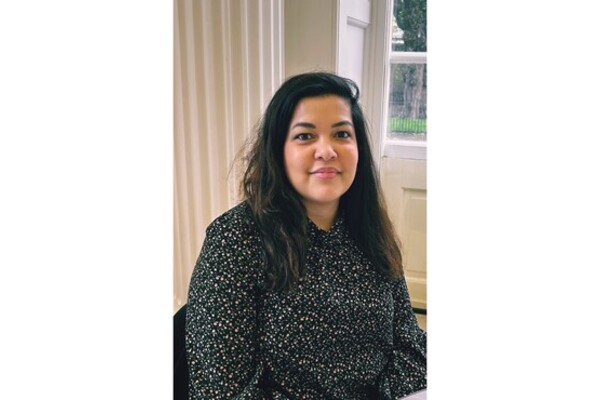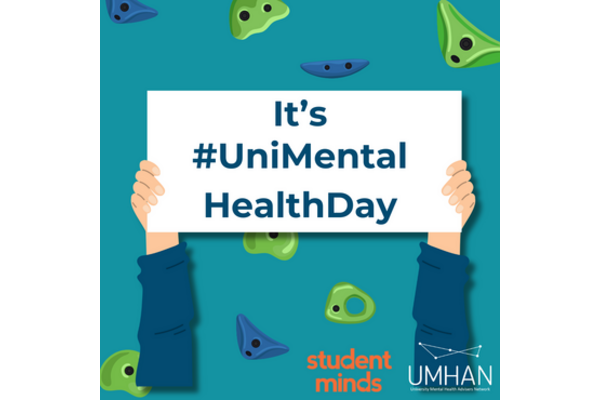Job title
Mental Health Mentor
Employer
Clear Links. Also working freelance for Essex First
How long have you worked in student mental health?
10 years
How long have you been in your current role?
Since 2018
Can you outline your career and how you got to where you are today?
I come originally from a teaching background. I taught French and English as a Foreign Language until 2003 when I began working with a mental health charity and remained there for around 4 years. From then on, I worked in MH support for CMHT and then returned to the charity sector, working for Colchester Mind. From there I went into HE mentoring to broaden my skillset and to experience a university setting.
I was working as a sessional mentor for University of Essex from 2014-2018 after which
time the entire wellbeing team was made redundant – a devastating blow. I then moved on
to both employed and freelance agency work.
How does your experience and training help you to do your job well?
I started working in student mental health with a pretty sound mental health background as I’d been very much face to face with clients of all backgrounds and MH issues. Working
under CMHT I experienced quite a few acute cases, so once you’ve witnessed the scary
bits, it gives you the confidence to think ‘now I know I can cope with the extremes, I feel
confident about working in most outpatient sectors.’ My previous MH work was with 18+
services but our clients tended to be middle aged to older people. For some reason we
just didn’t have that many young people but I really enjoyed working with the ones we did
have, as there was greater potential for change. The university offered team work, which
is where I am happiest and is still the main thing I miss now, as a freelancer.
I entered Specialist Mentoring via the Route 1 pathway, as my degree wasn’t relevant and
with the changes within DSA at the time, I wouldn’t have been able to continue in my
mentoring role purely on experience; I needed something on paper. I didn’t want to do it
but was strongly encouraged by my lovely line manager at the time. When I did tackle the
course, it was perfectly tailored to the mentor job spec. I quite enjoyed it and learned a
little bit more as I went along. It was a consolidation of learning and experience, but the
course has sadly been withdrawn. (Big mistake!)
I’m a mindfulness teacher and I think that has helped a lot with helping students to cope
with anxiety. I also teach mindful communication, which is a learned skill that has helped
students to resolve relationship issues, particularly in shared accommodation, group work
and within their families.
Can you briefly explain your day-to-day responsibilities?
When the Covid pandemic came along, like everyone else, I switched to online support,
and now prefer mentoring this way, as I am able to work on a national rather than local
scale. I’m doing a lot more academic support than I was at Uni, for students who don’t
quite qualify for a study skills tutor but still need help with essay planning and research.
Some students just want to focus on their course, some just on their mental health, some
on their various issues and lack of diagnosis, some perhaps on more physical disabilities. I
enjoy working in a holistic and student led way. I find that setting termly goals as required
by the agencies I work for creates a more structured way of working, which suits many
students and consolidates their progress.
A great privilege of working as a SMHM is that we are able to follow the student through
from year one to Post Grad if they so wish. This consistency of support is invaluable to the
student as it often takes time to build up trust. It can be quite upsetting to finally say
goodbye to a long term student though, as we both need to detach and retain our
professional boundaries. Occasionally, if I feel a student is uncomfortable with me, they
don’t engage or they need more specialist help than I am able to provide, I will refer the
them back to the agency with appropriate recommendations to be reassigned to another
mentor. When our time together is coming to an end, I signpost students to support for
employment, further study or support services. I might research their local area with them
and help them to access whatever they feel will be helpful in the future.
What’s helped you to stay in your role?
I think it’s my enthusiasm which carries through to the students and makes them want to
continue. I find it helpful to choose students who attend courses that I can relate to. I don’t
believe that to carry out this role effectively you need all the qualifications stipulated by
DSA. It’s the ability to listen actively, to show a genuine interest in the student’s wellbeing
and academic progress. I have mentored students who have had interest from nobody -
including their family. They are all searching for an identity and I enjoy seeing that
develop, trans students especially, as they have such a rough journey sometimes.
What part has UMHAN played in this?
At first I definitely had imposter syndrome! There are a lot of highly qualified people within
the organisation who are sometimes on a different track to me, e.g. very strong on the
policy and procedure side with a more clinical way of working - more formal perhaps –
which is understandable when staff are coming from such varied backgrounds. I felt a bit
daunted initially because I’d come through the DSA one route and that way of access was
withdrawn after a couple of years. Initially, attending UMHAN meetings was terrifying,
because it is so different being with an unknown peer group and feeling I might be judged.
I was also concerned because I am “on the spectrum” and have relatively slow processing
skills.
For my first year of CPD with UMHAN I wrote about imposter syndrome. Researched it a
bit and kept a journal and that helped me a lot. I wouldn’t have done that if I hadn’t had to
do CPD! I then began to speak a little in the meetings, meekly! If Sam hadn’t been so
cheerful, open and approachable and had been of the officious variety, I would have just shrunk away. My confidence grew and I began to log on regularly. I attend all the mentor meetings now, recognise faces and feel much more part of it. I now belong to a supervision group made up entirely of UMHAN members which is such a valuable asset to my practice.
What’s your favourite part of your role?
Seeing students move on and witnessing positive change, such as increase in confidence,
autonomy and self-knowledge. I very much enjoy receiving the students’ feedback from
the various techniques and practices that we do in our sessions and witnessing the growth
of trust and enthusiasm.
I love working with first years as they arrive as kids and you can see them mature
throughout the year. Student and mentor build a trust in that working relationship. They’re
often very shy and reticent at first – sometimes seeing their mentor as an “authority figure”. Seeing them come out of their shell and flourish is wonderful.
What has changed in student mental health since you started your role?
The main issue that springs to mind is fast and efficient support. I can only speak for the
University I worked for, but when I first began mentoring we were a strong wellbeing team
of 12 mentors and counsellors who also staffed a wellbeing drop-in/crisis service.
Appointments were made directly to us from the student hub and mentoring students were allocated via the disability team. We all had free access to both managerial and clinical supervision.
Since we were made redundant, the wellbeing team was reconstructed from scratch with
only Wellbeing Advisors who were allocated impossibly large caseloads. DSA mentoring
was contracted out to agencies who were not provided with a confidential space to work in
and were unwelcome on campus during Covid. We are now accommodated but with no
parking allowance and no salary if the student fails to show.
External local services have declined over the past 10 years as has the flexibility/availability of NHS services. An increasing number of support services in both the statutory and voluntary sectors are referring students back to Universities, saying that they will receive better support there. (From, presumably, non-medical helpers!)
What do you think are the biggest remaining challenges?
Students themselves appear to be less resilient than they were, more anxious, as the
financial burden of University studies intensifies and I’ve certainly noticed less enjoyment
of university life over the past 10 years, as competition for lucrative work increases and the
future portrayed by the media is so negative and challenging for everyone. Students are
coming to us with less life experience and more online presence, often living in a virtual
world of social media comparisons and gaming to “escape” current day pressures. Face to
face communication, phone calls and even emails can present as more daunting than
perhaps they would have been for former students, as are group work, tutorials and
seminars.
Have you got any feedback from students that you could share with us?
Hi {redacted},
I just wanted to say thank you for all the help you’ve given me over the last year. I’m really grateful. Unfortunately I’ll be dropping out of uni. Even though I’ve improved dramatically in my mental health my academic ability hasn’t returned unfortunately. I wanted you to know that the advice you’ve given me has been really helpful and I will continue to use it in my daily life! I’m doing far better now, which is in part thanks to our sessions. Best wishes, C.
Dear {redacted}
I just want to thank you for absolutely everything you have done for me over the past four years. I am so grateful for all the support you have given me and for everything I have learnt from you. From accepting that what I was going through warranted help, to learning that I need to prioritise my own needs over others, to finding that I often try to create family in my friendships, to learning that taking on other people’s problems does not help me; and to understanding that being in the present is so very important. These are just some examples of the life lessons that I don’t believe I would have learnt if I hadn’t met you, so I am thankful for that, and will cherish your advice always. You have such a kind, funny and wise spirit and I will miss you dearly.









